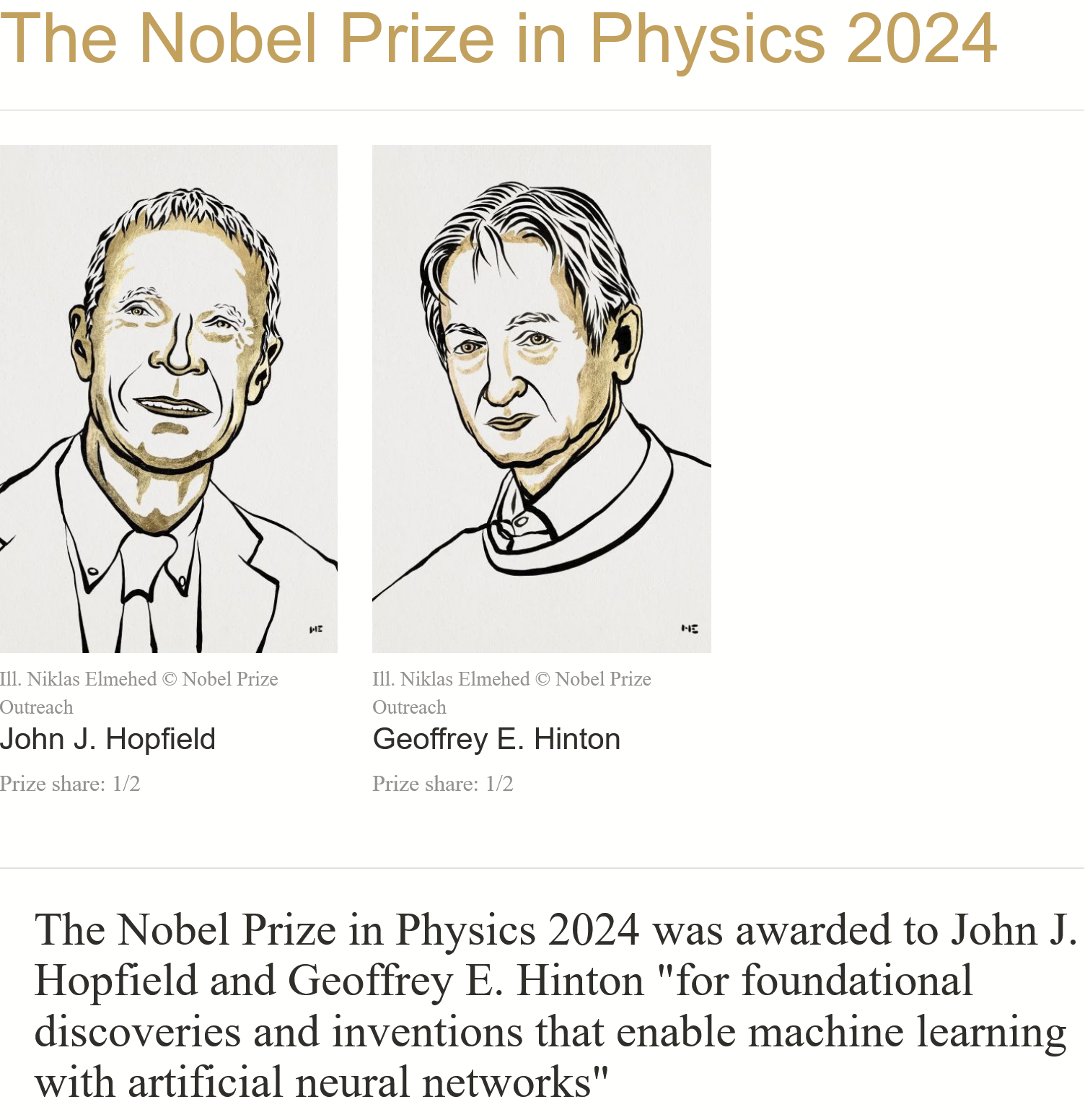"Informed AI News" is an publications aggregation platform, ensuring you only gain the most valuable information, to eliminate information asymmetry and break through the limits of information cocoons. Find out more >>
2024 Nobel Physics Prize Awarded for Pioneering Work in Artificial Neural Networks
- summary
- score

On October 8, 2024, the Royal Swedish Academy of Sciences awarded the Nobel Prize in Physics to John J. Hopfield of Princeton University and Geoffrey E. Hinton of the University of Toronto. Their recognition stems from foundational discoveries and inventions in machine learning using artificial neural networks. Each will receive half of the 1100 million Swedish kronor prize.
Since 1901, the Nobel Physics Prize has been awarded 117 times, honoring 224 individuals, with John Bardeen being the only double recipient.
Recent laureates include:
- 2023: Pierre Agostini, Ferenc Krausz, and Anne L’Huillier for developing experimental methods to produce attosecond light pulses, crucial for studying electron dynamics in matter.
- 2022: Alain Aspect, John Clauser, and Anton Zeilinger for groundbreaking work in quantum information science, demonstrating that Bell's inequalities do not hold in the quantum realm.
- 2021: Syukuro Manabe and Klaus Hasselmann for modeling Earth's climate and predicting global warming; Giorgio Parisi for uncovering the interplay between disorder and fluctuations in physical systems.
- 2020: Roger Penrose for proving black holes' formation under general relativity; Reinhard Genzel and Andrea Ghez for discovering a supermassive compact object at the Milky Way's center.
- 2019: James Peebles for theoretical discoveries in physical cosmology; Michel Mayor and Didier Queloz for finding an exoplanet orbiting a Sun-like star.
The 2024 prize underscores the rapid evolution and profound impact of artificial intelligence on scientific understanding and technological advancement.
| Scores | Value | Explanation |
|---|---|---|
| Objectivity | 7 | Comprehensive and balanced reporting on Nobel Prize winners. |
| Social Impact | 6 | Significant impact on public opinion and scientific community. |
| Credibility | 7 | Highly credible, sourced from the Royal Swedish Academy of Sciences. |
| Potential | 7 | High potential for influencing AI research and development. |
| Practicality | 6 | Practical impact on AI technology and applications. |
| Entertainment Value | 3 | Some interest for tech enthusiasts, but not broadly entertaining. |